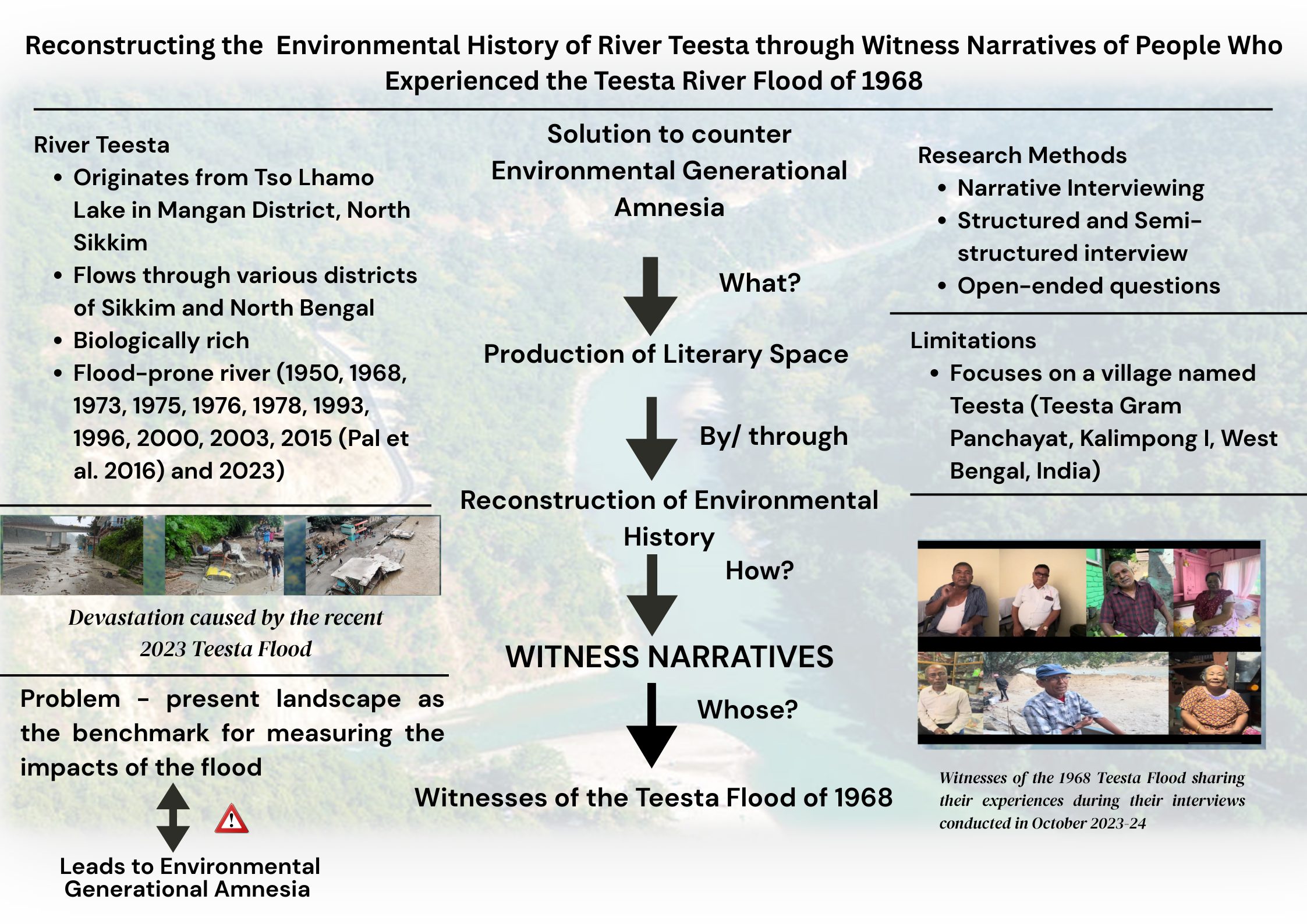In a world traumatised by ecological disasters, we need to find ways and means of sustainable living that include region-specific studies in the discipline of literary, cultural, and comparative studies. In this context, the Department of Languages and Literature – English would like to present an innovative research project underway that contributes to the G20 Sustainable Development Goals. Ms. Pratiksha Pradhan, working under the supervision of Dr. Vijayalekshmi R., has chosen to work on a place named Teesta. The place has gained its name from the River Teesta, which flows through India and Bangladesh. The lives of people living along the Teesta River basin are entangled with the river in an ecocultural relationship, as documented by Ms. Pratiksha Pradhan in her doctoral research work with the help of data collected over the past three years, from 2023 to 2025. The data collected brings to light the people’s association with the river as characterised by ecoprecarity, owing to the ecological catastrophe of the Teesta river floods, which have become a yearly ritual for those living along the river basin. The extant data shows that the floods have been occurring regularly since 1950. However, both the current and future generations of Teesta regard the present landscape as the benchmark for measuring the impacts of the flood, owing to the environmental generational amnesia that the people of Teesta suffer from, compromising their ability to access the landscape as it existed before 1950. To fill the gaps and connect the dots, Ms. Pratiksha Pradhan’s doctoral research work reconstructs the environmental history of Teesta with the help of the witness narratives of the people of Teesta who have lived through the floods.

